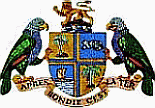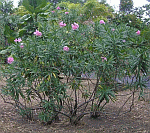
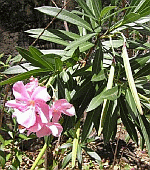
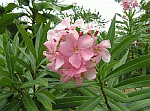
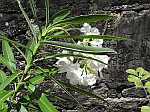
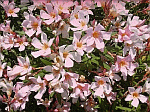
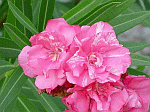
|
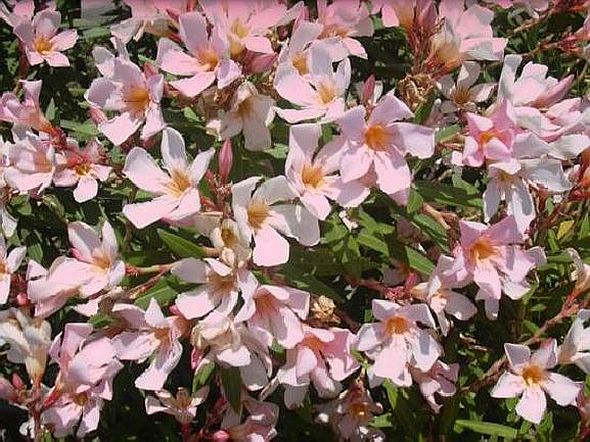
Forest & Kim Starr
Plant Family: Belongs to the Apocynaceae family, which includes Frangipani (Plumeria rubra) and the large Ditta Bark Tree (Alstonia scholaris).
Description: Moderate size, very attractive flowering shrub, growing to 8 m tall (25 ft), with thin erect branches and hairy young stems; leaves dark green, leathery, opposite, in whorls of three, are elongated, narrowly elliptical with pointed ends and conspicuous midvein,13-20 cm long (5-8 in); flowers pink (var roseum), white (var album), cream or red, bell-shaped, 4 cm or more long (1.6 in) and 2.5-4 cm across (1-1.5 in), in terminal clusters, with flowering profuse and continuous; narrow pod-like fruits are 10-20 cm long (4-8 in); several “single” and “double” varieties exist; plant contains a poisonous milky sap, which in young branches is clear; all parts of the plant are poisonous to humans and livestock, ingestion causes vomiting, abdominal pain, convulsions, coma and death.
Natural Habitat: Specially suited to dry, sunny areas at lower elevations; propagation by seeds, cuttings or layering.
Origin and Distribution: Native to the Mediterranean and Eurasia; now common throughout the Caribbean and rest of tropical and sub-tropical world.
Uses: Very popular ornamental, planted singly or in banks; though poisonous if ingested, milky juice used as remedy for skin diseases.
Indigenous Legends: Reportedly, deaths have even occurred from food cooked on Oleander wood fires through inhalation of smoke from the burning wood.
References:
G.W. Lennox and S.A. Seddon. Flowers of the Caribbean. Macmillan, London 1978 University Press 1972
Dorothy P. Storer. Familiar Trees and Cultivated Plants of Jamaica. Macmillan, London 1964.
C.D. Adams. Flowering Plants of Jamaica. University of the West Indies, Mona, Glasgow University Press. 1972
H.F. Macmillan. Tropical Planting and Gardening. Macmillan, London 1956
Penelope N. Honeychurch. Caribbean Wild Plants and Their Uses. Macmillan, London, 1986
Robert A. DeFilipps. Useful Plants of the Commonwealth of Dominica, West Indies. Smithsonian Institution, Washington, D.C. 1998
|
